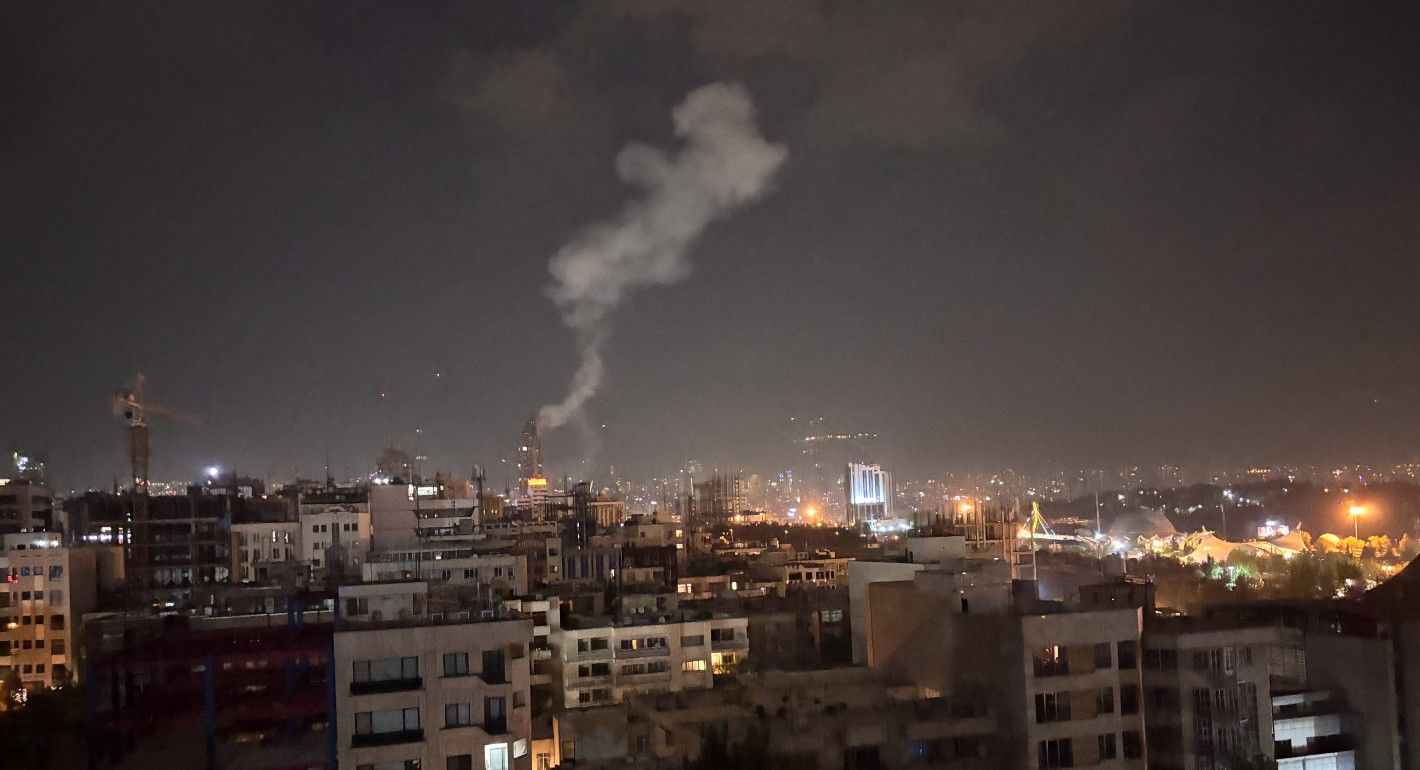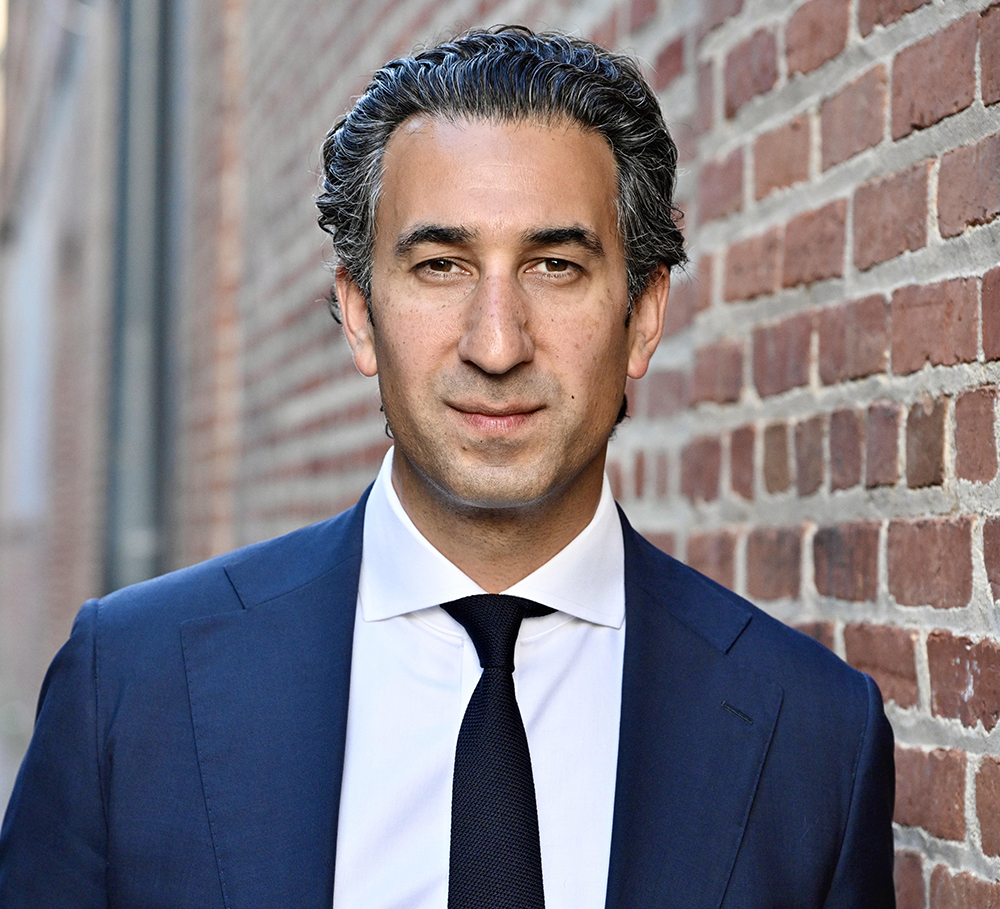Venezuelans deserve to participate in collective decisionmaking and determine their own futures.
Jennifer McCoy
{
"authors": [
"James M. Acton"
],
"type": "commentary",
"blog": "Emissary",
"centerAffiliationAll": "",
"centers": [
"Carnegie Endowment for International Peace"
],
"englishNewsletterAll": "",
"nonEnglishNewsletterAll": "",
"primaryCenter": "Carnegie Endowment for International Peace",
"programAffiliation": "",
"programs": [
"Nuclear Policy"
],
"projects": [],
"regions": [
"Israel",
"Iran",
"United States"
],
"topics": [
"Nuclear Policy",
"Arms Control"
]
}
Smoke rises from a location allegedly targeted in Israel's wave of strikes on Tehran, Iran, on early morning of June 13, 2025. (Photo by SAN/Middle East Images/AFP via Getty Images)
Even U.S. intervention would not forestall an Iranian nuclear bomb indefinitely.
Iran’s clandestine nuclear program was revealed in August 2002 with the news that it was constructing an enrichment facility at Natanz. Early this morning, Israel attacked that site—along with other Iranian nuclear facilities, leaders and scientists, and military installations. Israel’s actions are likely to ensure that over twenty years of effort to prevent Iran from acquiring the bomb will fail. At this point, the United States’ best move is to stay out of both the immediate war and the prolonged military conflict it will likely spark.
Israeli Prime Minister Benjamin Netanyahu justified the strikes by claiming that “in recent months, Iran has taken steps that it has never taken before—steps to weaponize its [stockpile of] enriched uranium.” This claim directly contradicts the U.S. intelligence community, which assessed in March that “Iran is not building a nuclear weapon and . . . [Iranian Supreme Leader Ali] Khamenei has not reauthorized the nuclear weapons program he suspended in 2003, though pressure has probably built on him to do so.”
Now, this pressure will likely become irresistible. Iran’s missile forces (which were reportedly also struck) have failed to deter three Israeli attacks on Iran in the past fourteen months. Over that time, Israel has destroyed Iran’s air defenses and “Axis of Resistance,” its network of state and terrorist allies. At this moment of exceptional weakness, nuclear weapons must look extremely attractive to Tehran—as both a deterrent and a source of domestic and international prestige.
At the same time, diplomacy seems dead in the water. U.S. President Donald Trump appeared to genuinely want a deal with Iran (even if the urgency to negotiate one was the direct result of his catastrophic decision to withdraw from the Joint Comprehensive Plan of Action in 2018). He says he still wants to negotiate. Now we will never know whether a new deal was attainable. Iran’s main motivation to negotiate—to forestall an attack—went up in the smoke above Natanz.
Of course, the latest Israeli strikes will reduce Iran’s capability to build a nuclear weapon. It remains to be seen by how much. Fundamentally, however, all strikes can do is kick the can down the road. Iran can, and surely will, reconstitute its nuclear program, likely as a dedicated nuclear-weapon program.
In the immediate future, the most pressing question is probably the fate of Fordow, an enrichment plant buried tens of meters underground. Most analysts believe that this facility is buried too deeply for Israel to destroy (though it might be able to collapse the entrance). Indeed, according to International Atomic Energy Agency Director General Rafael Grossi, Israel did not strike the facility this morning, though it may do so in the next few days. If Fordow remains operational, Israel’s attacks may barely slow Iran’s path to the bomb.
And even if Fordow is destroyed, Iran can still reconstitute its program. While individual Iranian scientists can be killed, knowledge of enrichment is widely dispersed in Iran. Moreover, with the Iran deal’s demise, the International Atomic Energy Agency lost its ability to monitor small, portable centrifuge components. What happened to them is unknown—but it seems likely that they have been dispersed and stored in secure locations. If some survived the Israeli strikes, Iran can install them in facilities even deeper than Fordow. Perhaps most concerning is the realistic possibility that some of Iran’s stockpile of highly enriched uranium, which is stored in small cylinders, survived the attacks. With minimal effort, Iran could enrich this material to the level needed to make a nuclear weapon.
In practice, uncertainty about Iran’s program is now likely to be pervasive—at least until it is too late. Iran will almost certainly bar inspectors from the country and will probably withdraw from the Nuclear Non-Proliferation Treaty (which requires it to accept inspections). Moreover, it is unlikely to face much pushback. Much of the world will view withdrawal as a proportionate response to being attacked, especially by a nuclear-armed state that never joined the treaty.
Intelligence activities may fill in some of the resulting knowledge gaps—but only some of them. Despite Israel’s many intelligence successes, including its extraction of Iran’s nuclear archive, spies cannot weigh Iran’s cylinders of enriched uranium or measure the enrichment level of the material inside. IAEA inspectors can.
The upshot is that Tehran will probably succeed in acquiring a nuclear weapon sooner or later.
Presumably Netanyahu has somehow convinced himself otherwise. Perhaps he hopes that, by attacking military and regime targets, he will enable the Iranian people to overthrow their government. If so, it’s a hell of a gamble. Perhaps he believes that Israel can attack Iran periodically and will always succeed in setting back its nuclear program for long enough that Israel can replenish its missile defenses before “mowing the grass” again. If so, that doesn’t seem like a better bet. Most likely, Netanyahu hopes that the United States will try to bail him out—both by trying to destroy Fordow right away and by launching periodic attacks against Iran’s nuclear infrastructure. If so, he deserves to be disappointed.
The United States can bring more military capability to bear than Israel. However, there is no reason to think that it can succeed in forestalling an Iranian bomb indefinitely. Instead, it will likely find itself enmeshed in yet another prolonged and bloody Middle Eastern conflict.
Such an outcome, however, is not inevitable. The United States can choose to avoid being dragged into the conflict. Israel has acted; it should have to face the consequences alone.
Carnegie does not take institutional positions on public policy issues; the views represented herein are those of the author(s) and do not necessarily reflect the views of Carnegie, its staff, or its trustees.
Venezuelans deserve to participate in collective decisionmaking and determine their own futures.

Jennifer McCoy
A conversation with Karim Sadjadpour and Robin Wright about the recent protests and where the Islamic Republic might go from here.



Aaron David Miller, Karim Sadjadpour, Robin Wright
When democracies and autocracies are seen as interchangeable targets, the language of democracy becomes hollow, and the incentives for democratic governance erode.


Sarah Yerkes, Amr Hamzawy
From Sudan to Ukraine, UAVs have upended warfighting tactics and become one of the most destructive weapons of conflict.


Jon Bateman, Steve Feldstein
And how they can respond.



Sophia Besch, Steve Feldstein, Stewart Patrick, …